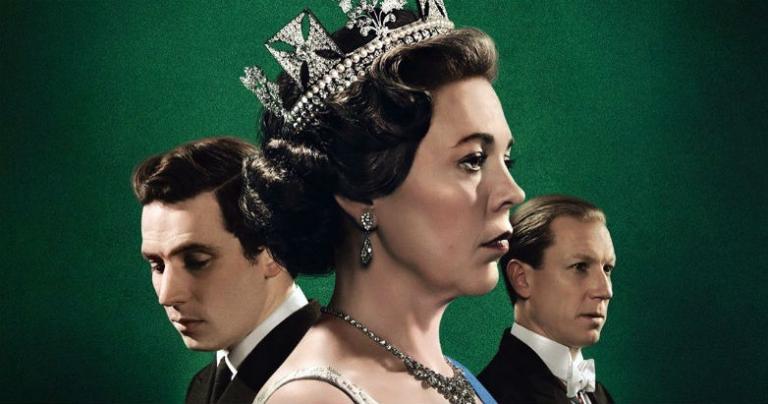
Netflix’s The Crown, along with being a top-notch soap opera about the current British royal family, is also a time capsule of how things have changed — for better, or, as often, if not more often, for worse — since Queen Elizabeth II ascended the throne in 1952. That’s most evident in her role at head of the Church of England, which, today, is nearly unrecognizable as the institution she took over.
Interestingly, although Elizabeth (played by Clare Foy in seasons one and two, and now, in season three, by Olivia Colman) is the titular head of the church, she never appears to function as any kind of religious authority. Unlike the pope, who wields real power, the British queen is as much a figurehead in her church as she is in her realm. In both arenas, she’s bound by law and custom over which she has no control.
A lot of the drama in the early seasons of The Crown – which takes place in the 1950s and early ’60s — has do do with the then-teachings of the Anglican Church about divorce and remarriage (which once were nearly indistinguishable from those of the Catholic Church). In particular, they makes life tough for the tempestuous Princess Margaret (Vanessa Kirby, succeeded by Helena Bonham Carter).
Frankly, my least favorite parts of the first two seasons of The Crown were Prince Philip’s (Matt Smith) endless whinging, and Margaret’s partying and sexual adventures. The new Philip (Tobias Menzies) is an improvement, but, despite Bonham Carter’s considerable talents, Margaret continues to be an insecure, flighty pain in the neck.
But, while the Anglican problem with divorce prevented Margaret’s first marriage to a divorced man (who, by the way, carried on with her while he was still married), its teachings on sexual morality seem to have had no effect whatsoever on her — as indeed, they no longer have any effect on the Anglican Communion itself.
However, Queen Elizabeth II, although having no religious authority, appears — in The Crown and in life — to be a serious Christian. I’ve heard her tastes run more to the Presbyterian style of worship than High Anglican, but there’s no doubt she’s a sincere believer. One of The Crown‘s most charming episodes showed her gazing up at the visiting Billy Graham as he was preaching, and her joy at being a “simple congregant” receiving instruction about the Gospel.
She’s also often seen praying, but as befits this self-contained character, all we get to hear is the “Amen.”
Incidentally, series creator Peter Morgan, whose father was a German Jew who escaped from the Nazis, was raised as a Catholic, his Polish mother’s religion (she escaped the Soviets). No word on whether he currently practices.
This season, the somewhat more irreligious Prince Philip — an Anglican convert who, born a prince in Greece, was baptized Greek Orthodox — had a faith awakening of his own. The episode, called Moondust, set in 1969, Philip becomes enamored of the moon landing and the three Apollo 11 astronauts. At the same time, he’s introduced to a group of dispirited, discouraged Anglican clergy doing a retreat at a Windsor Castle property, arranged by the new Dean of Windsor, Rev. Robin Woods (Tim McMullan).
At one point, he tongue-lashes the clergy, labeling them as ineffectual and failures, as compared to the vigor of the astronauts. But when Philip actually meets the Apollo 11 trio, he’s dismayed to discover that they’re only human, after all.
At the same time, Philip’s mother, Princess Alice of Battenberg, is at Windsor. Deaf since birth, she struggled with mental illness in her life and also did a great deal of charity and humanitarian work, including sheltering Jewish refugees in Athens during World War II. She later founded a Greek Orthodox order of nursing nuns, called the Christian Sisterhood of Martha and Mary. Roundly ridiculed in earlier seasons for wearing a habit, she’s revealed as also being a sincere believer.
As related in a new article by Bishop Barron (read the whole thing here):
When Philip comes to see her, it seems for the first time in quite a while, she inquires as to the Prince’s well-being. At the end of their brief conversation, she wonders about his faith. After he gives a diffident response, she looks at him and says, “You must find your faith; it will help you.” But then, realizing immediately the inadequacy of her characterization, she looks wistfully into the middle distance and insists, “No, it doesn’t just help. It’s everything.” I cannot think of a better way to express the all-determining, all-embracing quality of authentic religious belief. Though modern etiquette dictates that faith be one feature of a person’s private life, the great masters of the spiritual tradition know that such a compartmentalized religion is no religion at all. It’s everything, or it’s a waste of time.
After his disappointing meeting with the astronauts, Philip has a revelation of sorts. Chastened, he returns to the circle of clergymen and does an informal confession, and then asks for their help in rediscovering his faith. Bishop Barron sees this as an echo of the Pelagian heresy — named after the 5th Century theologian Pelagius — that holds that we can achieve salvation through effort alone. St. Augustine opposed him, insisting that it was rather a work of unearned grace than simply a reward for spiritual toil. As Bishop Barron writes:
It comes, as Prince Philip rather slowly and painfully realized, not through strenuous effort, but as his mother clearly knew, through faith—a surrender to what can only be called grace. The primacy of grace, it has been argued, in the central teaching of the Bible. How wonderful that it’s also a key lesson in an episode of one of the most popular television programs of our time.
While Queen Elizabeth II is not able to prevent the church she heads from abandoning its traditional teachings and tossing itself headlong into the dangerous embrace of the modern world, the fictional show about her may, in the end, impart more Christian teaching than do many of her clergy.
Image: Netflix
Don’t miss a thing: Subscribe to all that I write at Authory.com/KateOHare














